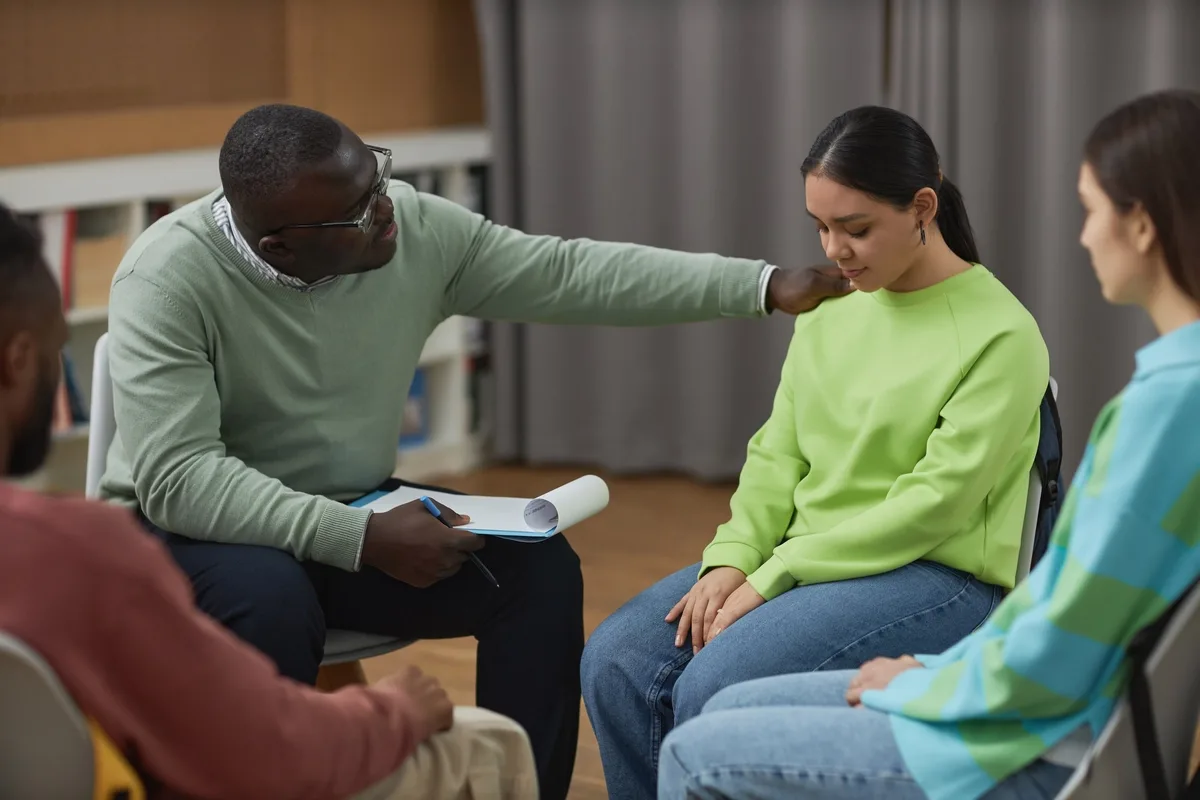24/7 Helpline:
(866) 899-221924/7 Helpline:
(866) 899-2219
Learn more about PTSD Treatment centers in Center

Other Insurance Options

Excellus

Molina Healthcare

Regence

Choice Care Network

Magellan Health

BlueCross

BHS | Behavioral Health Systems

Carleon

PHCS Network

Cigna

Aetna

Health Net

Meritain

Evernorth

Optima

Humana

MVP Healthcare

Lucent

Ambetter

Highmark














